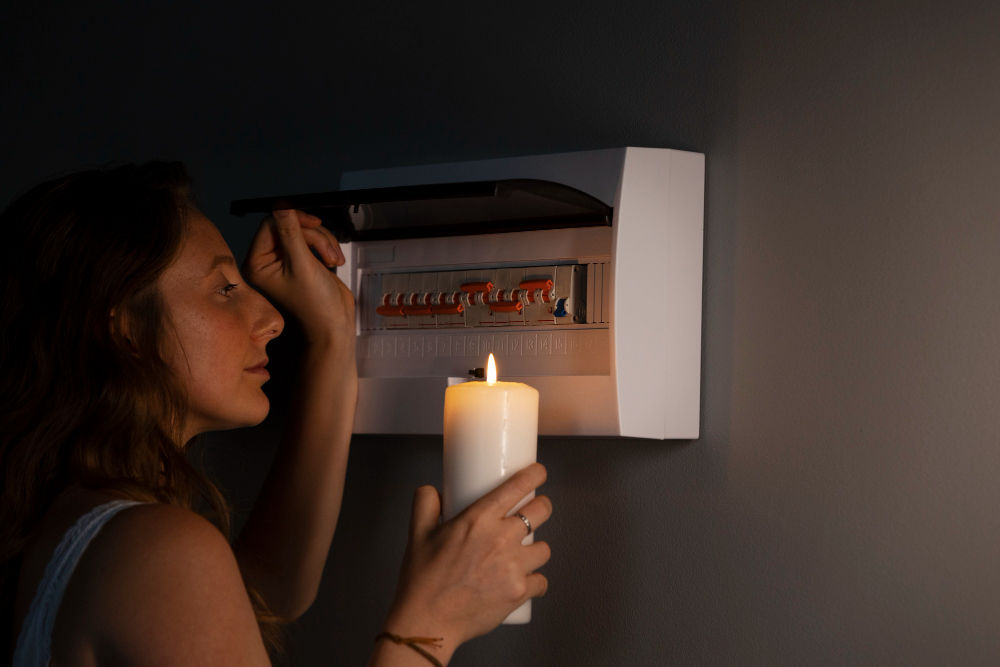What You Need to Know About Preventing Short Circuits
You’re no electrician, but that doesn’t mean you can’t prevent short circuits.
You’ll discover what causes these nuisances, how to spot them before they’re a problem, and ways to stop them in their tracks.
You’ll also learn how to handle short circuits safely.
Now, let’s empower you with the knowledge you need to keep your home’s electrical system running smoothly.
Understanding Short Circuits
Before you can effectively prevent short circuits, it’s crucial that you understand what they are and how they occur. Let’s talk circuit basics.
A circuit is like a loop, a path for electrical current to travel. Electrical resistance, on the other hand, is a force within the circuit that slows the flow of current.
Now, when there’s an unintended path in the circuit, causing the current to skip its normal path, you’ve got a short circuit. This can occur due to factors such as faulty installation, wire degradation, or insulation breakdown.

It’s significant because it can lead to equipment damage, electrical fires or even explosions. So, understanding how circuits and resistance work is the first step in preventing short circuits.
Common Causes of Short Circuits
To prevent short circuits, you need to be aware of their common causes. Faulty wiring is a leading cause; an analysis can reveal issues such as damaged wires, improper connections, or overloading that can trigger a short circuit. It’s essential to regularly check your wiring system and fix any discovered faults promptly.
Another cause is insulation breakdown. This occurs when the protective layer around the wires wears off, causing them to touch each other or metallic surfaces. An insulation breakdown study can show you the severity of this issue in your system.
Identifying Signs of a Short Circuit
In your quest to prevent short circuits, recognizing the signs early on is crucial. Pay close attention to circuit symptoms and faulty wiring indicators.
You might notice lights that flicker or dim suddenly; this can suggest an overburdened circuit or loose wiring. Another sign is when devices or outlets become unusually hot. Heat can be a result of excessive current flowing through the circuit.
If your circuit breaker frequently trips, it’s likely detecting a dangerous short circuit condition and shutting off to prevent damage. An acrid, burning smell from your outlets or switches is a serious sign of faulty wiring. Lastly, if you’re experiencing shocks when touching an appliance, it’s a probable short circuit.
It’s essential to identify these signs early to prevent potential hazards.
Techniques for Preventing Short Circuits
You’ll find several effective techniques to prevent short circuits in your home or workplace. Proper Circuit Design is paramount – you should ensure that all electrical devices are correctly wired, grounded, and insulated. It’s also essential that you don’t overload your circuits, as this can cause overheating and may result in a short circuit.

Fuse Selection also plays a vital role in preventing short circuits. Fuses are designed to protect your circuits by blowing or tripping when they detect an overload or short circuit. Therefore, it’s crucial to choose the right type and rating of fuse for each circuit. Regular inspection and timely replacement of worn-out fuses can further help in preventing short circuits.
Stay safe by keeping these preventive measures in mind.
Dealing With Short Circuits Safely
Despite taking precautions, if you’re faced with a short circuit, dealing with it safely should be your top priority.
Wearing Personal Protective Equipment (PPE) like electrical gloves, safety glasses, and flame-resistant clothing can provide a layer of protection against electrical shocks and burns.
You should also have an Emergency Response Plan in place. This plan will guide you on what to do, who to contact, and how to evacuate if necessary.
Never try to fix a short circuit if you’re not trained, it’s too risky. Always call a professional electrician.
Remember, short circuits can cause fires or electrical shocks. Your safety is paramount, so don’t take any chances.
Stay safe by using the right PPE and following your Emergency Response Plan.
Frequently Asked Questions
What Materials Are Most Resistant to Causing Short Circuits?
In terms of insulating materials efficiency, rubber and plastic are most resistant to causing short circuits. Be mindful of household items risk, as metal objects can easily create a short circuit if not properly insulated.
Are Some Types of Electrical Devices More Prone to Short Circuits Than Others?
Yes, some devices are more prone to short circuits due to device vulnerability and circuit complexity. If a device’s circuitry is complex, there’s a higher chance of shorts, especially if safeguards aren’t properly in place.
Can Weather Conditions Impact the Likelihood of a Short Circuit Occurring?

Absolutely, weather conditions can impact the likelihood of a short circuit. Climate influence plays a part, especially in humid or wet conditions. You’ll benefit from weatherproofing techniques to protect your devices from these risks.
How Often Should Electrical Systems Be Inspected to Prevent Short Circuits?
You should schedule an inspection of your electrical systems every year. Regular maintenance is crucial to prevent short circuits. Remember, consistent checks and upkeep can save you from costly and dangerous electrical issues.
Can Short Circuits Affect the Overall Lifespan of an Electrical Device?
Absolutely, short circuits can drastically impact your device’s durability. They can cause lifespan limitations, often leading to premature failure. It’s vital you take precautions to prevent such issues, ensuring longevity of your devices.
Conclusion
So, you’ve got the basics on short circuits.
Now you know what causes them, how to spot them, and crucially, how to prevent them.
But remember, safety first. If you’re ever unsure, call a professional. Don’t risk it.
With a little knowledge and caution, you can keep your electrical systems running smoothly and safely.
After all, prevention is better than cure, especially when it comes to short circuits.
